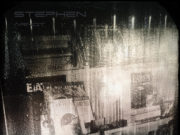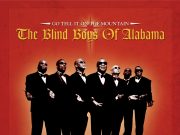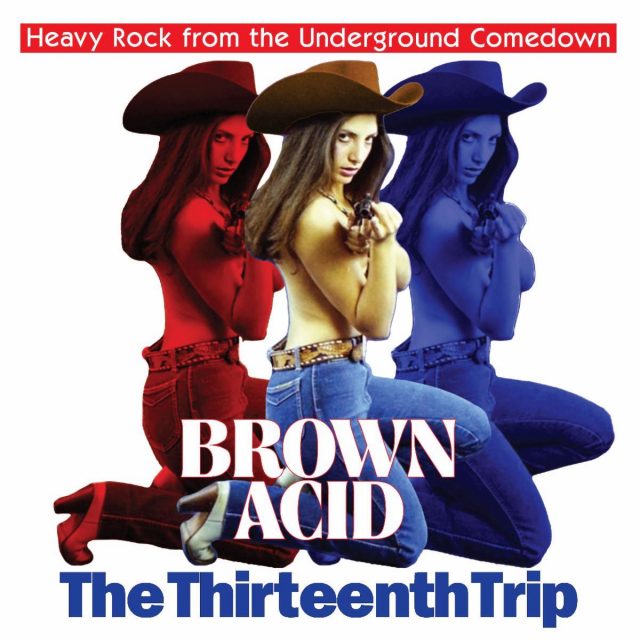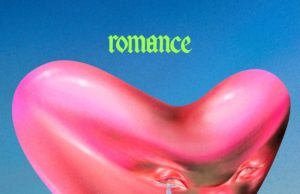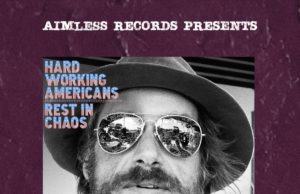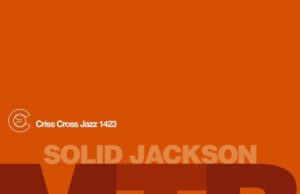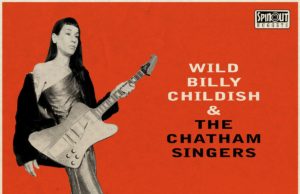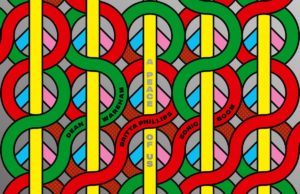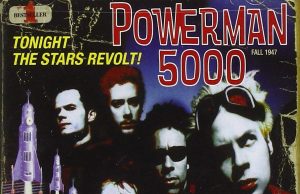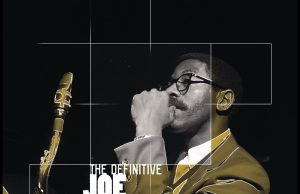THE EDITED PRESS RELEASE: “One of the best thrills of the Internet music revolution is the ability to find extremely rare music with great ease. But even with such vast archives to draw from, quite a lot of great songs have gone undiscovered for nearly half a century — particularly in genres that lacked hifalutin arty pretense. Legendary compilations like Nuggets, Pebbles, etc. and ad nauseam have exhausted the mines of early garage rock and proto-punk. However, few have delved into the wealth of proto-metal, pre-stoner rock tracks collected on Brown Acid.
Lance Barresi, co-owner of L.A./Chicago retailer Permanent Records, has shown incredible persistence in tracking down a stellar collection of rare singles from the ’60s and ’70s for the growing compilation series. Partnered with Daniel Hall of RidingEasy Records, the two have assembled a selection of songs that’s hard to believe have remained unheard for so long.
“I essentially go through hell and high water just to find these records,” Barresi says. “Once I find a record worthy of tracking, I begin the (sometimes) extremely arduous process of contacting the band members and encouraging them to take part. Daniel and I agree that licensing all the tracks we’re using for Brown Acid is best for everyone involved,” rather than simply bootlegging the tracks. When all of the bands and labels haven’t existed for 30-40 years or more, tracking down the creators gives all of these tunes a real second chance at success. There’s a long list of songs that we’d love to include. But we just can’t track the bands down. I like the idea that Brown Acid is getting so much attention, so people might reach out to us.”
This time out, Max — a Montreal outfit originally known as Dawn, before Tony Orlando & Dawn forced a name change — kick things off with Run Run from their lone 1970 single. It’s a hard-hitting rocker with scale-climbing, crunching guitars and powerful Bonhamesque drumming. Sadly, the band didn’t last long due to poor management and various other factors, so this is the only surviving document, according to guitarist Gerry Markman. And what a document it is.
You might remember Ralph Williams And The Wright Brothers from their track Never Again on The Tenth Trip. Here they make their return to the series with the A-side of their 1972 45, which sounds like Blue Cheer mangling Roy Orbison’s Pretty Woman several years before Van Halen actually did so. Alas, the band soon disappeared from terrestrial airspace.
Feelin’ Dead is extremely heavy blues, from an extremely rare 1974 single by Detroit’s Master Danse which was only released as a promo 45. Think Led Zeppelin’s Since I’ve Been Loving You and you’re on the right track. A little dose of Hendrix acid blues and a heartfelt groove, and you’ll wonder why this single never even made it to official release. The unavoidable tell in the lyric, “help me get this damn thing out of my arm” hints at the post-Vietnam heroin epidemic as a potential clue why we never heard more from Master Danse.
Next up, Del Vecchio is Buzzin’ hard on this one, and from what sounds like an in-studio party of yelps and chatter at the start of the song, it seems that the whole band was in on the festivities. The funky blues riff, reminiscent of Led Zeppelin’s Heartbreaker and rollicking rhythmic changes certainly keep the buzz a rollin’. The recording is technically credited as Gary Del Vecchio with Max, though not the same one that kicks off this Trip.
John Kitko’s 1973 heavy psychedelic rager Indecision is the only recording known to exist by the mysterious artist. The release features a different artist on the B-side, which is truly a shame, considering the smoldering ashes Kitko leaves of the turntable by song’s end. It starts out more like a late ’60s acid-rock jam before leaping into a blazing double-time gallop, whipped into a frenzy by wailing, neck-pickup guitar squeals and Kitko’s barely audible howls.
Tampa’s Bacchus made their Brown Acid debut way back on the very first Trip with Carry My Load. Their 1972 B-side Hope is a huge-sounding, swinging rocker replete with roadhouse piano bolstering the chunky riffs and confident vocals. After relocating to Southern California a few years later, the band morphed into Fortress, an ’80s melodic metal act whose Hands In The Till album still draws chatter today.
Orchid’s Go Big Red is perhaps the most garage-y sounding offering here, with loose rhythms and straightforward stop-and-start riffing. Nonetheless, the stomping energy and fried-amp guitar tone make this one a charming skull thwack. The band’s 1973 single , backed with a cover of Johnny Russell and Voni Morrison’s Act Naturally (popularized by Buck Owens And The Buckaroos) is their only release, so the world never did see this Orchid fully blossom.
By the title alone of Dry Ice’s Don’t Munkey with the Funky Skunky, you know you’re in for a good time. The 1974 barnstormer seems aimed to the novelty tunes crowd, with its kooky lyrics and silly-voiced spoken catchphrase break, “peeyew, you’ll be sorry if you do.” But, the Ohio band’s maniacal drumming, crunching guitars and, of course, drug euphemistic lyrics make it a shoo-in for the Brown Acid series of erudite rock ’n’ roll.
Good Humore’s swaggering 1976 rocker Detroit is a slick and smooth paen to the Motor City. It most likely doesn’t predate Detroit Rock City by Kiss, also released in 1976, and it has more rock ’n’ roll swing, but it could fit comfortably alongside the era’s arena anthems. Not much else is known about the one-off release, but songwriter Mike Moats is known to also have been a recording engineer in later years and this well-produced track sounds like a labor of love.”







